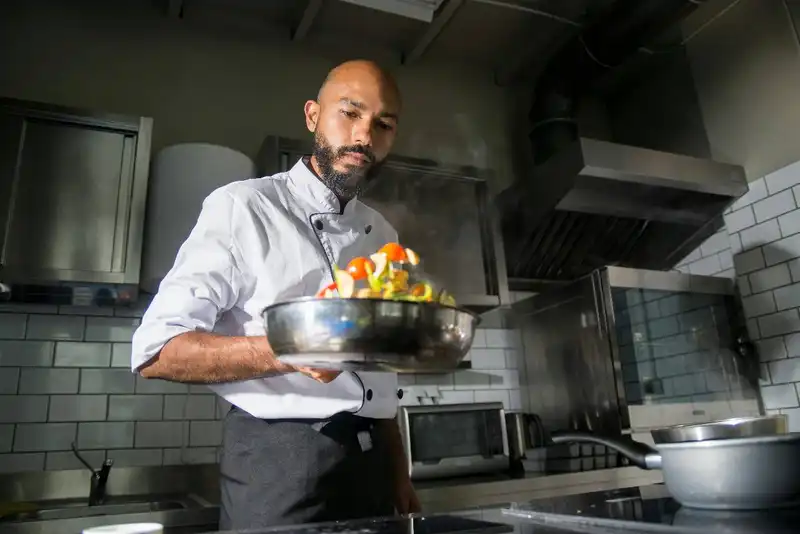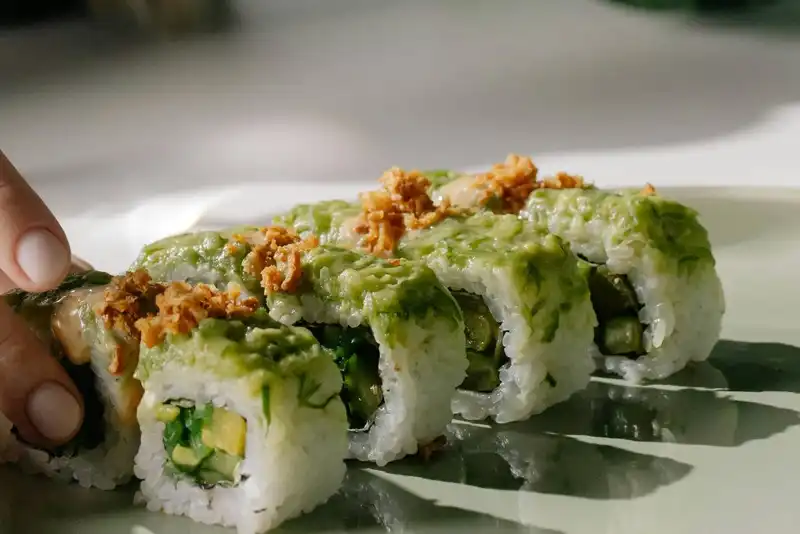What are the benefits of a diverse culinary workforce?
A diverse culinary workforce brings a wealth of creativity, perspectives, and skills to the kitchen. It fosters innovation, enhances problem-solving, and broadens culinary offerings to cater to diverse tastes. Additionally, a diverse team mirrors the multicultural nature of the food industry, promoting inclusivity and understanding among staff and ultimately contributing to a more dynamic and successful culinary environment.
The Foundations of Careers in Culinary Arts
The Role of Recruitment in the Culinary Industry
Recruitment stands as the essential ingredient for success in the culinary realm, playing a pivotal role in shaping the destiny of a restaurant. In the dynamic and ever-evolving restaurant business, the acquisition and retention of top culinary talent emerge as critical determinants of overall success.
One of the essential challenges faced by restaurant owners is the perpetual quest for skilled and passionate culinary professionals. The scarcity of top-tier talent amplifies the competitive nature of the industry. Sourcing individuals with a profound understanding of diverse cuisines, creativity in the kitchen, and an ability to adapt to the fast-paced environment is a perpetual struggle. The culinary industry demands not just expertise but an unwavering commitment to excellence.
Retaining such talent presents an equally formidable challenge. The transient nature of the workforce in the culinary domain often leads to a revolving door of talent. Restaurant owners grapple with the task of creating an environment that fosters professional growth, job satisfaction, and a sense of belonging, all essential elements in retaining top-tier culinary professionals.
Effective recruitment strategies serve as the linchpin of success in this relentless pursuit. Identifying the right talent requires a multifaceted approach, including targeted outreach, partnerships with culinary schools, and leveraging digital platforms. Moreover, streamlining the hiring process ensures that potential candidates are not lost to a cumbersome bureaucracy, preventing the loss of valuable talent to competitors.
The impact of adept recruitment strategies resonates throughout the entire business ecosystem. A well-assembled culinary team doesn't merely prepare dishes; they craft experiences that elevate a restaurant's reputation. The right staff contributes not only to the consistency and quality of the cuisine but also to the seamless execution of operations. This cohesion translates directly to customer satisfaction, which, in turn, fuels positive reviews, repeat business, and an enhanced reputation within the culinary landscape.
Effective recruitment is the central component of success for restaurant industry executives. It is a strategic investment that transcends the kitchen, influencing the brand, customer satisfaction, and ultimately the bottom line. In an industry where excellence is not just a goal but an expectation, the impact of recruitment reverberates, shaping the destiny of every culinary establishment.
Retention Strategies for Culinary Talent

A key component in culinary talent retention is the cultivation of a positive work culture. Chefs and staff thrive in environments that prioritize collaboration, respect, and open communication. Establishing a culture that values the input of every team member, from sous chefs to kitchen assistants, fosters a sense of belonging and loyalty. Nurturing such an atmosphere goes beyond providing a space for culinary prowess; it creates a workplace that individuals are proud to be a part of, prompting long-term commitment.
Offering professional development opportunities is a critical element in keeping culinary talent engaged. Recognize the ambition of your chefs and staff by providing avenues for skill enhancement, whether through workshops, certifications, or culinary courses. This not only hones their craft but also demonstrates a commitment to their growth. A skilled chef is an asset, and investing in their continuous learning ensures that your establishment remains at the forefront of culinary innovation.
Implementing employee recognition programs is a powerful tool for acknowledging the dedication and hard work of your culinary team. Recognition, when timely and sincere, serves as a motivator, instilling a sense of pride and accomplishment. This can be as simple as publicly acknowledging outstanding performances during team meetings or hosting monthly awards for exemplary service. Employee retention is positively impacted, as feeling valued is instrumental in preventing burnout and encouraging sustained enthusiasm for the culinary craft.
In the quest for talent retention, remember that monetary compensation is just one piece of the puzzle. While competitive salaries are crucial, they alone are insufficient to retain top culinary talent. A harmonious blend of a positive work culture, professional development opportunities, and robust employee recognition programs forms the trifecta that keeps chefs and staff not only committed but eager to contribute their culinary prowess to your restaurant.
Restaurant industry leaders understand that the path to culinary excellence begins with a commitment to retaining top talent. Change your mindset, invest in your employees, and foster an environment in which culinary professionals thrive. Your success is measured not only by finding the best candidates but also by retaining them.
Innovative Restaurant Software Solutions
Modernize Your Recruitment Process with Altametrics
Understanding the Skills Gap in Culinary Arts
The role of culinary education stands as a key element in shaping recruitment practices within the restaurant industry. Graduates from culinary schools, apprenticeship programs, and various educational pathways offer distinct advantages and challenges for restaurant owners seeking to build skilled and versatile culinary teams.
Hiring graduates from culinary schools presents the advantage of a structured and comprehensive education. These individuals often possess a solid foundation in culinary techniques, kitchen management, and menu planning. However, challenges arise as some graduates may lack real-world experience and struggle to seamlessly integrate into fast-paced restaurant environments. The balance between theoretical knowledge and practical application becomes crucial for success.
Apprenticeship programs, on the other hand, provide hands-on experience from the get-go, fostering adaptability and a deep understanding of kitchen operations. Yet challenges persist, as apprentices may not have exposure to the same breadth of culinary styles and techniques as their formally educated counterparts. Striking a balance between practical skills and a broader culinary perspective becomes imperative for those considering candidates for apprenticeship programs.
The collaboration between restaurants and educational institutions can be mutually beneficial. Establishing partnerships allows restaurants to actively shape curricula, ensuring that graduates are equipped with the skills most relevant to industry needs. Simultaneously, aspiring culinary professionals benefit from real-world insights, gaining a competitive edge in a highly competitive job market.
Within this framework, a clear talent gap exists in the industry, posing challenges for restaurant owners in their quest for the ideal culinary team. The sought-after qualifications extend beyond technical proficiency; restaurants now prioritize creativity, adaptability, and a keen understanding of evolving culinary trends.
The skills gap implies a need for targeted recruitment strategies and continued professional development for existing staff. Restaurant industry executives must actively seek candidates who not only excel in traditional culinary skills but also demonstrate a capacity for innovation and a willingness to embrace change.
As the culinary industry navigates the challenges of the skills gap, a strategic approach to recruitment that values both formal education and practical experience is essential. Collaboration with educational institutions enhances the pool of qualified candidates, while a nuanced understanding of the evolving skill set required in the culinary arts ensures that restaurants remain at the forefront of innovation and excellence.
Leveraging Technology in Culinary Recruitment
Technology has proven to be a major player, revolutionizing the traditional recruitment process and providing restaurant industry executives with powerful tools to streamline hiring. Online platforms, AI-driven hiring tools, and virtual interviews have collectively reshaped the way top-tier culinary talent is identified and recruited.
Online Platform
Specialized websites and apps dedicated to culinary recruitment have transcended geographical barriers, allowing executives to access a global talent pool with unprecedented ease. These platforms enable the swift dissemination of job opportunities, ensuring that potential candidates are aware of openings in real-time.
AI-Driven Hiring Tools
Machine learning algorithms analyze resumes, identifying key skills, experience, and relevant qualifications. This not only expedites the initial screening process but also ensures that the most qualified candidates are shortlisted for further evaluation. The result is a more targeted and time-effective recruitment process.
Virtual Interviews
Restaurant industry executives can now conduct interviews with culinary candidates from anywhere in the world, saving both time and resources. Virtual interviews also facilitate a more comprehensive evaluation of candidates, as executives can assess their skills, creativity, and cultural fit in a simulated environment.
Embracing Technology
Technology accelerates the hiring timeline, allowing executives to promptly secure top-tier talent before competitors. The efficiency gained through AI-driven tools and virtual interviews translates into cost savings as valuable resources are optimized for maximum impact.
Furthermore, the use of technology ensures a more objective and data-driven approach to recruitment. AI tools eliminate unconscious biases, focusing solely on candidates' qualifications and skills. This promotes diversity and inclusivity in the culinary workforce, a crucial aspect of modern restaurant operations.
The integration of technology in culinary recruitment has redefined the hiring landscape for restaurant industry executives. Online platforms, AI-driven hiring tools, and virtual interviews collectively enhance efficiency, objectivity, and the ability to secure top-tier culinary talent. As the industry continues to become more technologically advanced, embracing these technological advancements will undoubtedly be a key determinant of success for forward-thinking restaurant executives.
Niche Culinary Professions and Specializations

An array of niche professions and specializations play pivotal roles in shaping the success and innovation of the restaurant industry. Beyond the traditional kitchen brigade, there exists a cadre of experts whose expertise contributes to the visual appeal, culinary ingenuity, and operational efficiency of establishments.
1. Food stylists. These professionals meticulously craft the visual allure of dishes for menus, advertisements, and social media platforms. Their keen eye for aesthetics ensures that each plate is not only a gastronomic delight but also a visual masterpiece. With the power to entice customers through captivating imagery, food stylists are essential partners in marketing strategies, enhancing the overall appeal and competitiveness of a restaurant.
2. Research chefs. These culinary scientists blend culinary artistry with a deep understanding of food science, conducting experiments to develop new recipes, techniques, and flavor profiles. Their work extends beyond the kitchen, often influencing menu innovation, product development, and even contributing to dietary trends. Research chefs are the avant-garde thinkers who bring a fresh perspective to the culinary landscape, providing restaurants with a competitive edge through novel and trendsetting culinary creations.
3. Culinary consultants. These professionals offer valuable insights into menu development, kitchen layout, workflow efficiency, and cost management. Whether working with established establishments or guiding startups, culinary consultants possess the expertise to enhance the overall functionality of a restaurant, elevating its profitability and sustainability.
These specialized roles are not merely complementary but instrumental in fostering creativity and driving business success. When it comes to dining industry executives, recognizing the value of these niche professions opens avenues for collaboration, expansion, and differentiation. Embracing the expertise of food stylists, research chefs, and culinary consultants can catapult a restaurant into the forefront of innovation, setting the stage for enduring success in an increasingly competitive market.
The Art of Headhunting in Culinary Recruitment
Executive search firms and headhunters emerge as indispensable allies, playing a pivotal role in identifying, attracting, and placing exceptional candidates in key positions within the restaurant industry.
The foremost advantage of engaging headhunters lies in their unparalleled ability to navigate the expansive culinary landscape. Armed with an extensive network and insider knowledge, these professionals excel at pinpointing individuals with the precise skills and expertise demanded by discerning restaurant executives. Their nuanced understanding of industry trends ensures that only the most adept candidates are presented for consideration.
Collaborating with headhunters also offers a time-efficient solution for executives eager to expedite the recruitment process. The relentless pursuit of culinary excellence demands a proactive approach, and headhunters, equipped with their comprehensive databases and strategic outreach, swiftly connect executives with candidates who meet exacting criteria. This acceleration not only mitigates the risk of key positions languishing unfilled but also injects fresh talent into the culinary bloodstream.
Moreover, headhunters function as adept negotiators, navigating the delicate terrain of executive compensation packages. Their expertise in aligning candidate expectations with industry standards fosters a harmonious recruitment process. This ensures that both parties embark on a mutually beneficial journey, where culinary virtuosos find a fitting stage for their talents and restaurant executives secure the linchpins for their culinary success.
Nevertheless, wise executives contemplating collaboration with headhunters must exercise due diligence. Selecting a headhunter with a proven track record in culinary recruitment is imperative. A comprehensive understanding of the restaurant industry's unique demands and an established network within the culinary community are non-negotiable prerequisites for success.
The art of headhunting in culinary recruitment is an instrumental force in sculpting the trajectory of the restaurant industry. Executive search firms and headhunters, with their innate ability to identify and attract top-tier talent swiftly, provide a conduit for culinary excellence. The carefully chosen relationship with these professionals not only expedites the recruitment process but also ensures that the harmony between executive vision and culinary prowess remains the key.
Recruitment Strategies
The efficiency of digital platforms and virtual recruitment tools needs to be taken into account. Online platforms widen the talent pool, allowing restaurants to reach potential candidates beyond their immediate network. The speed and accessibility of digital recruitment streamline the initial stages of the hiring process, providing a broader scope for talent discovery.
However, the optimal approach lies in striking a balance between the old and the new. Face-to-face interviews remain indispensable for evaluating not just technical skills but also interpersonal qualities crucial in a collaborative culinary environment. The tactile experience of interacting with candidates in person allows for a nuanced assessment of their passion, creativity, and ability to thrive under pressure.
Building a high-performing culinary team necessitates a keen focus on cultural fit, diversity, and inclusion. A diverse team brings a rich tapestry of perspectives, enhancing creativity and innovation in the kitchen. Cultural fit ensures that individuals align with the values and ethos of the restaurant, fostering a harmonious work environment that resonates with patrons.
Effective interviewing techniques play a pivotal role in selecting candidates who can contribute to the team's success. Beyond assessing technical prowess, interviews should delve into a candidate's problem-solving skills, adaptability, and teamwork. Evaluating potential leaders within a restaurant demands a nuanced understanding of their management style, communication skills, and ability to inspire and mentor a diverse team.
The key to building a culinary dream team lies in the judicious integration of word-of-mouth recommendations, personal referrals, face-to-face interviews, and digital recruitment tools. Striking this balance ensures a well-rounded and efficient hiring strategy that not only identifies top-tier talent but also fosters a diverse and inclusive team culture conducive to culinary excellence in the industry. Employee motivation plays a pivotal role in this process, driving individuals to showcase their culinary prowess and contribute to the overall success of the team.
Future Trends in Culinary Recruitment
Changing consumer tastes wield considerable influence over culinary recruitment strategies. With a burgeoning demand for diverse and globally inspired cuisine, restaurant industry executives are increasingly seeking culinary professionals well-versed in cross-cultural flavors and culinary traditions. The ability to craft inventive dishes that cater to a spectrum of palates is becoming a non-negotiable skill in the pursuit of top talent.
Sustainability considerations are also steering the course of culinary recruitment. As environmental consciousness takes center stage, there is a growing emphasis on sourcing practices, waste reduction, and eco-friendly kitchen operations. Culinary professionals with a keen understanding of sustainable practices are, therefore, gaining favor among recruiters, reflecting a broader commitment within the industry to reduce its ecological footprint.
Global influences are shaping the skills and qualities sought after by culinary professionals. The fusion of culinary traditions from around the world is giving rise to a new breed of chefs who can seamlessly blend diverse ingredients and techniques. This global perspective extends beyond the kitchen, with multilingual abilities and cultural acumen becoming valuable assets in an industry that caters to an increasingly international clientele.
The demand for culinary professionals proficient in technology is also on the rise in hospitality careers. As kitchens integrate cutting-edge tools and automation, chefs adept at leveraging technology to enhance efficiency and precision are in high demand. From advanced cooking equipment to digital menu management systems, the modern culinary professional in hospitality must navigate a tech-savvy landscape.
Restaurant industry executives must stay attuned to these trends to successfully recruit top talent. Embracing diversity, prioritizing sustainability, valuing global perspectives, and integrating technology are essential components of a forward-looking recruitment strategy. As consumer preferences continue to evolve, those who can anticipate and adapt to these changes will position themselves at the forefront of the culinary industry, ensuring a vibrant and prosperous future for their establishments.












